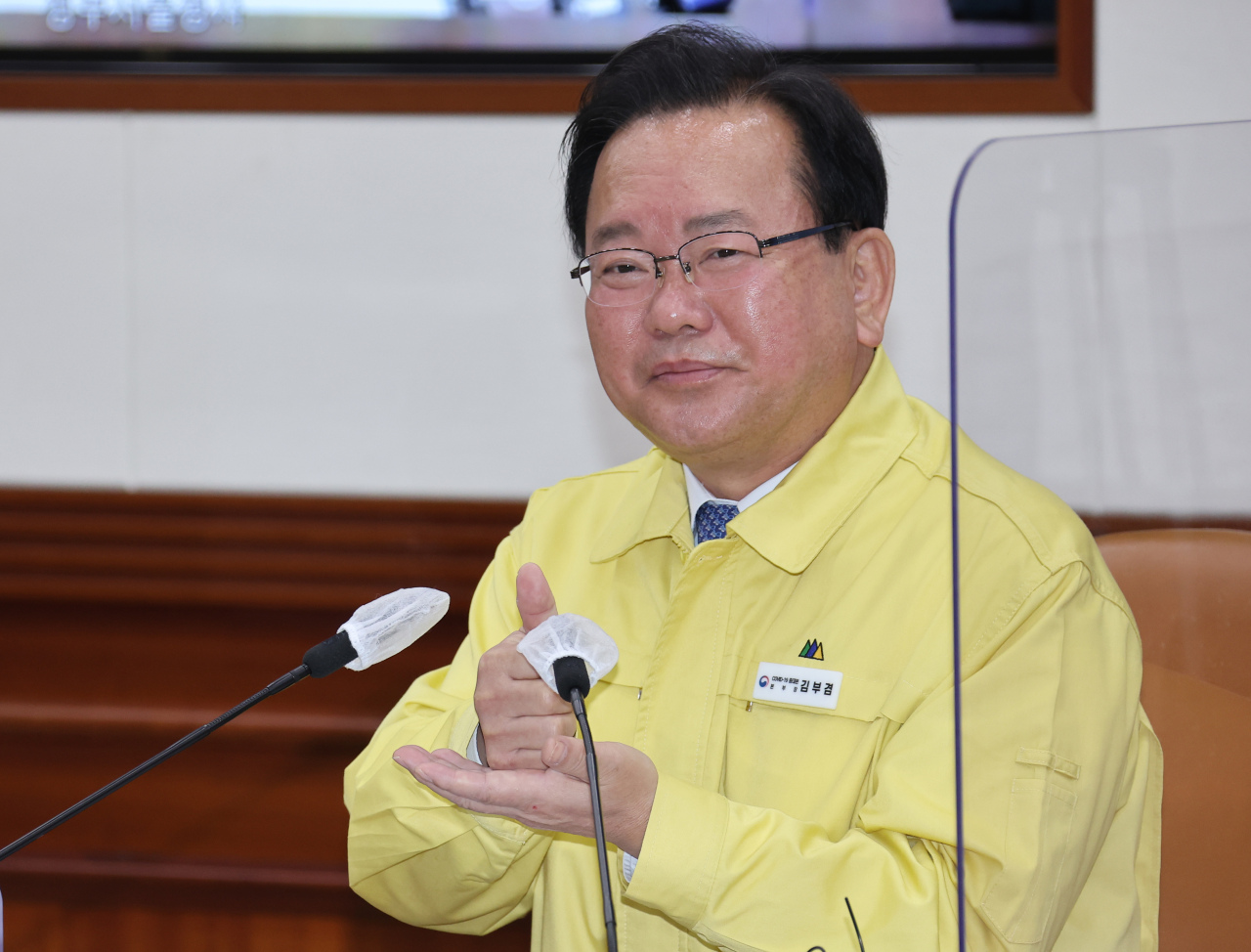 |
Prime Minister Kim Boo-kyum does “thank you” in sign language during the last meeting of Moon administration’s COVID-19 headquarters on Friday. (Yonhap) |
At the last meeting of Moon Jae-in administration’s COVID-19 headquarters top officials applauded South Korea’s handling of the pandemic over the years.
Presiding over the meeting Friday, Prime Minister Kim Boo-kyum warned against “disparaging the country’s success in combatting COVID-19 without any evidence” in a message to critics.
“There have some criticisms that compared to other countries, Korea was late in returning to normal life. But based on statistics alone, our pandemic response has been a success, and ought to be evaluated as such,” he said.
He said Korea’s cumulative COVID-19 fatality rates of around 0.13 percent were “one of the lowest among advanced economies.”
“This is a meaningful achievement especially considering we have never gone into a lockdown.”
He told the opposition and the incoming administration of President-elect Yoon Suk-yeol that “political strife should have no place in COVID-19 response, which concerns the health and safety of people.”
In a briefing held later the same day the Ministry of Health and Welfare likewise said Korea’s response to the pandemic to date had been “remarkable.”
The ministry’s spokesperson Son Young-rae noted that although during the omicron wave “cases have risen rapidly, case fatality rates haven’t.” He said Korea has been able to keep the case fatality rates “stably low” through its omicron phase as well.
“In other countries around the world, health care systems have collapsed or become overloaded over delta, alpha or earlier waves, resulting in an enormous loss of human lives,” he said. Korea, on the other hand, “had managed to minimize the incidence of infections before omicron, when the virus was still highly fatal.”
“Korea did not get to a full-scale wave of infections until omicron, which is milder,” he said. “We believe this is one of the reasons that allowed Korea to minimize lives lost over the course of the pandemic.”
Omicron officially became the dominant variant here on Jan. 24 after its shares of new cases crossed 50 percent in the preceding week. Over the 85 days until April 18, when the country decided the wave was in retreat and ended social distancing completely, 15,619,353 cases and 14,684 deaths were recorded. The deaths counted since omicron’s dominance account for more than 70 percent of 23,158 cumulative deaths.
Friday marks 837 days since Korea’s first COVID-19 case was reported on Jan. 20, 2020.
By Kim Arin (
arin@heraldcorp.com)




![[Herald Interview] 'Trump will use tariffs as first line of defense for American manufacturing'](http://res.heraldm.com/phpwas/restmb_idxmake.php?idx=644&simg=/content/image/2024/11/26/20241126050017_0.jpg)

![[Health and care] Getting cancer young: Why cancer isn’t just an older person’s battle](http://res.heraldm.com/phpwas/restmb_idxmake.php?idx=644&simg=/content/image/2024/11/26/20241126050043_0.jpg)

